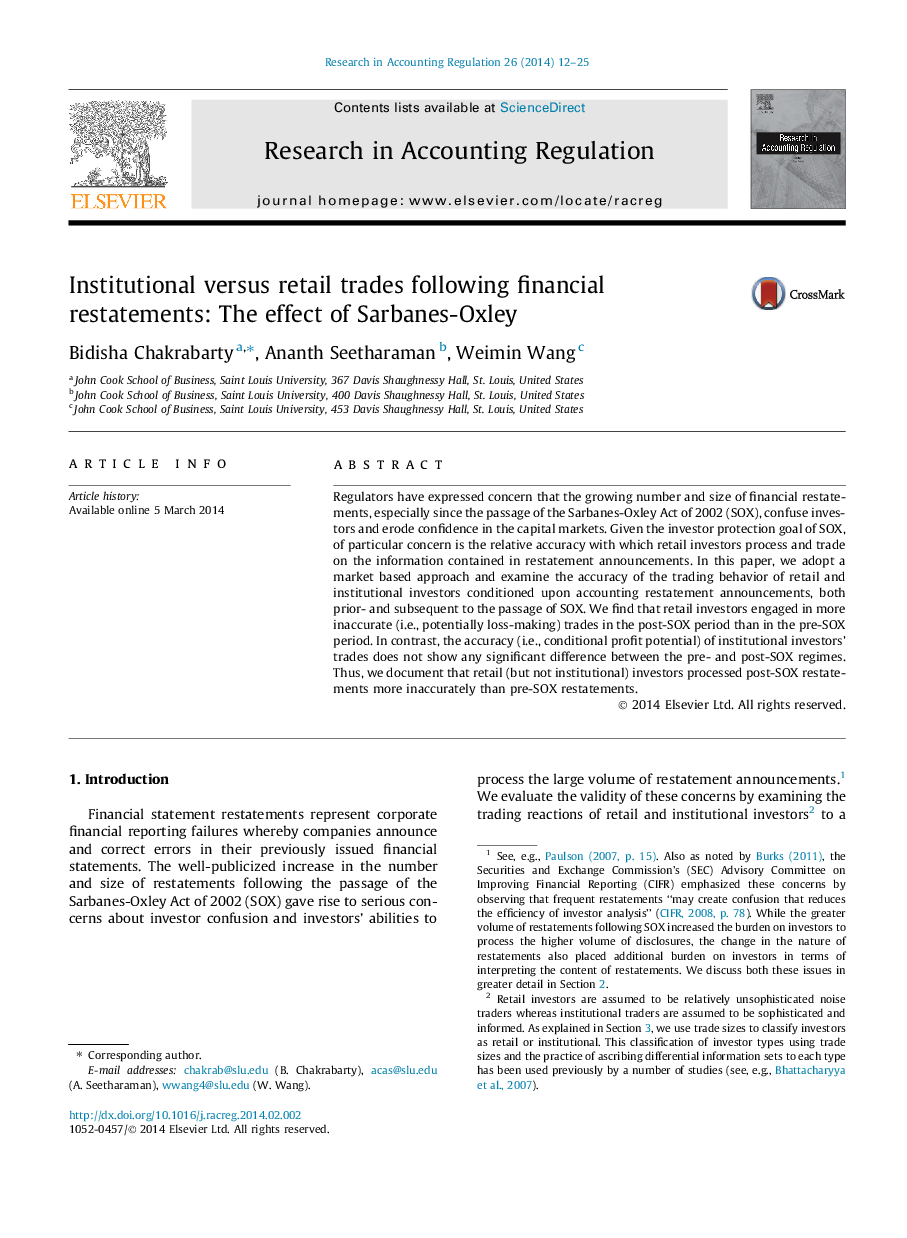| Article ID | Journal | Published Year | Pages | File Type |
|---|---|---|---|---|
| 1006665 | Research in Accounting Regulation | 2014 | 14 Pages |
Regulators have expressed concern that the growing number and size of financial restatements, especially since the passage of the Sarbanes-Oxley Act of 2002 (SOX), confuse investors and erode confidence in the capital markets. Given the investor protection goal of SOX, of particular concern is the relative accuracy with which retail investors process and trade on the information contained in restatement announcements. In this paper, we adopt a market based approach and examine the accuracy of the trading behavior of retail and institutional investors conditioned upon accounting restatement announcements, both prior- and subsequent to the passage of SOX. We find that retail investors engaged in more inaccurate (i.e., potentially loss-making) trades in the post-SOX period than in the pre-SOX period. In contrast, the accuracy (i.e., conditional profit potential) of institutional investors’ trades does not show any significant difference between the pre- and post-SOX regimes. Thus, we document that retail (but not institutional) investors processed post-SOX restatements more inaccurately than pre-SOX restatements.
